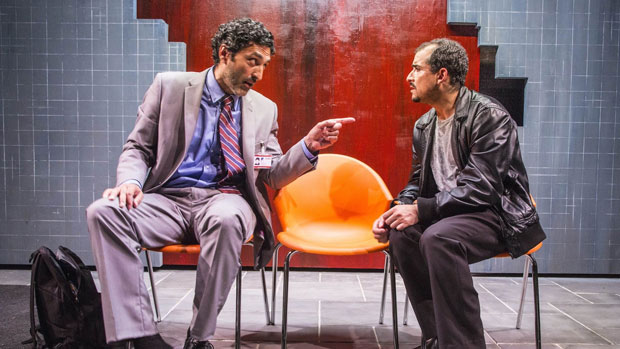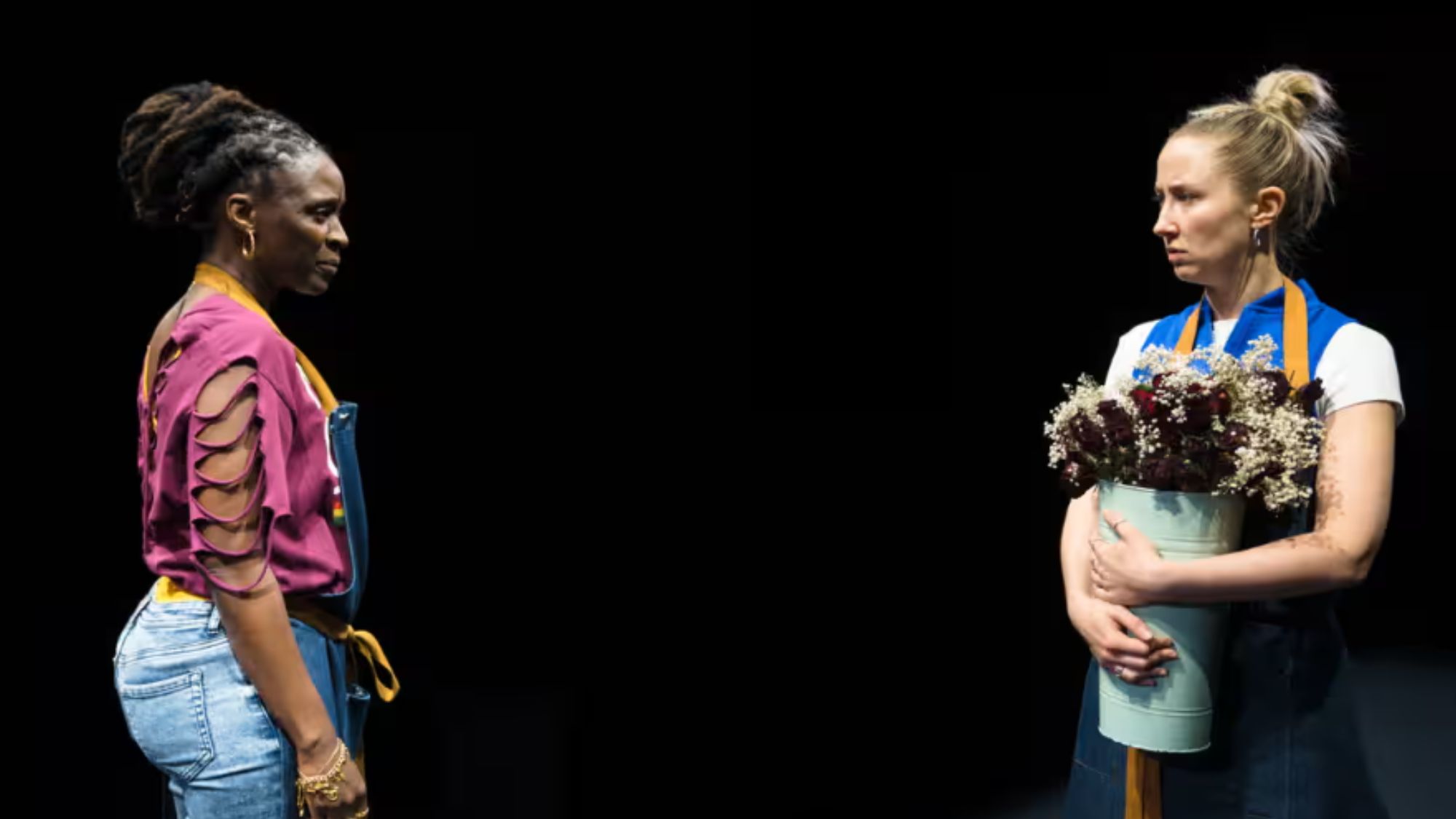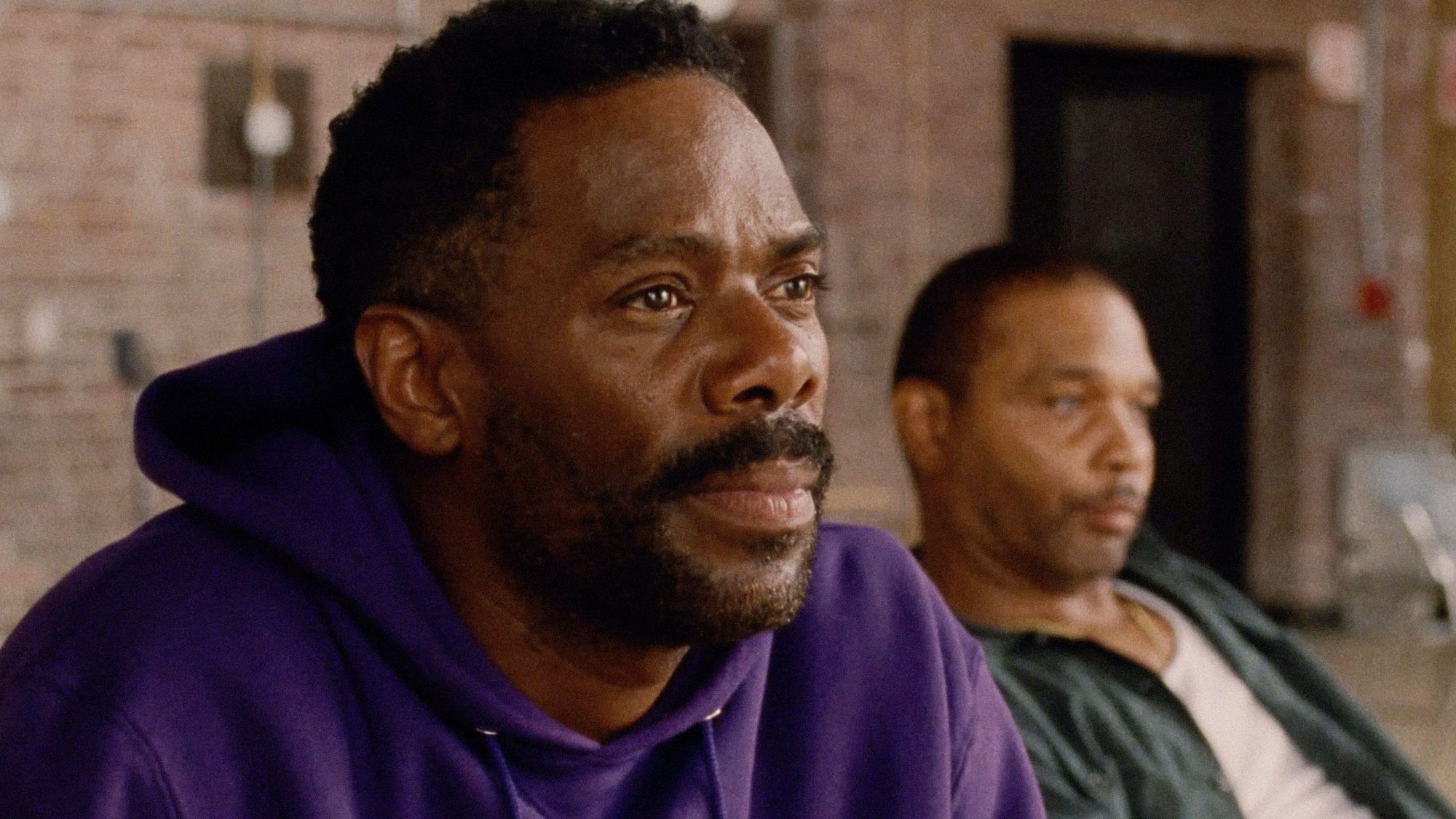The Nightmares of Carlos Fuentes – reviews of Iraqi play
Black comedy about an Iraqi refugee trying to escape his past is 'witty, topical and devastating'

A free daily email with the biggest news stories of the day – and the best features from TheWeek.com
You are now subscribed
Your newsletter sign-up was successful
What you need to know
Rashid Razaq's black comedy, The Nightmares of Carlos Fuentes, has opened at the Arcola Theatre, London. The play is adapted from a short story by the exiled Iraqi film-maker and writer Hassan Blasim.
Iraqi refugee Salim has fled persecution for a new life and new identity in Britain. As Carlos Fuentes he marries a wealthy older woman and studies for his citizenship test, but his nightmarish past proves harder to escape than he imagined.
The Week
Escape your echo chamber. Get the facts behind the news, plus analysis from multiple perspectives.

Sign up for The Week's Free Newsletters
From our morning news briefing to a weekly Good News Newsletter, get the best of The Week delivered directly to your inbox.
From our morning news briefing to a weekly Good News Newsletter, get the best of The Week delivered directly to your inbox.
Tricycle Theatre's former head Nicolas Kent directs a cast starring Nabil Elouahabi (Top Boy). Runs until 16 August.
What the critics like
This is a "blackly witty, tonally false-footing and cumulatively devastating play", says Paul Taylor in The Independent. It's expertly directed, rawly topical and beautifully played by Nabil Elouahabi, with some very good jokes at the expense of religious sectarianism, false ideas of Britishness and bureaucracy.
Razaq's play "gives us an insight into the daily devastation wrought by sectarian conflict in post-Saddam Iraq" via one man's story of flight and struggle, says Fiona Mountford in the Evening Standard. With crisp, witty writing this gripping play tantalises us with the pieces of a time-hopping puzzle.
A free daily email with the biggest news stories of the day – and the best features from TheWeek.com
It jumps non-chronologically between 2006 and 2011 offering an "intensely sympathetic" portrait of an Iraqi Everyman, says Ian Shuttleworth in the Financial Times. This deeply sensitive piece of work eventually makes clear that Carlos inhabits two moments at once as his past tries to reclaim him.
What they don't like
The play touches on big issues and aims for the magic realism of the Mexican writer Carlos Fuentes, referenced in the title, but its individual scenes are "infinitely stronger than the whole", says Michael Billington in The Guardian. The tone is constantly shifting, but the piece is held together by Nicolas Kent's adroit production.
-
 How the FCC’s ‘equal time’ rule works
How the FCC’s ‘equal time’ rule worksIn the Spotlight The law is at the heart of the Colbert-CBS conflict
-
 What is the endgame in the DHS shutdown?
What is the endgame in the DHS shutdown?Today’s Big Question Democrats want to rein in ICE’s immigration crackdown
-
 ‘Poor time management isn’t just an inconvenience’
‘Poor time management isn’t just an inconvenience’Instant Opinion Opinion, comment and editorials of the day
-
 Friendship: 'bromance' comedy starring Paul Rudd and Tim Robinson
Friendship: 'bromance' comedy starring Paul Rudd and Tim RobinsonThe Week Recommends 'Lampooning and embracing' middle-aged male loneliness, this film is 'enjoyable and funny'
-
 The Count of Monte Cristo review: 'indecently spectacular' adaptation
The Count of Monte Cristo review: 'indecently spectacular' adaptationThe Week Recommends Dumas's classic 19th-century novel is once again given new life in this 'fast-moving' film
-
 Death of England: Closing Time review – 'bold, brash reflection on racism'
Death of England: Closing Time review – 'bold, brash reflection on racism'The Week Recommends The final part of this trilogy deftly explores rising political tensions across the country
-
 Sing Sing review: prison drama bursts with 'charm, energy and optimism'
Sing Sing review: prison drama bursts with 'charm, energy and optimism'The Week Recommends Colman Domingo plays a real-life prisoner in a performance likely to be an Oscars shoo-in
-
 Kaos review: comic retelling of Greek mythology starring Jeff Goldblum
Kaos review: comic retelling of Greek mythology starring Jeff GoldblumThe Week Recommends The new series captures audiences as it 'never takes itself too seriously'
-
 Blink Twice review: a 'stylish and savage' black comedy thriller
Blink Twice review: a 'stylish and savage' black comedy thrillerThe Week Recommends Channing Tatum and Naomi Ackie stun in this film on the hedonistic rich directed by Zoë Kravitz
-
 Shifters review: 'beautiful' new romantic comedy offers 'bittersweet tenderness'
Shifters review: 'beautiful' new romantic comedy offers 'bittersweet tenderness'The Week Recommends The 'inventive, emotionally astute writing' leaves audiences gripped throughout
-
 How to do F1: British Grand Prix 2025
How to do F1: British Grand Prix 2025The Week Recommends One of the biggest events of the motorsports calendar is back and better than ever